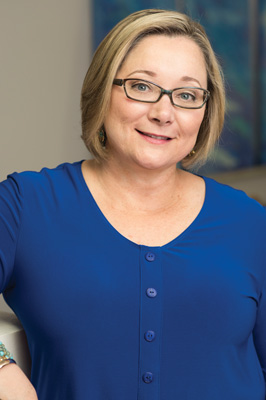 The phrase “Sonoma Strong” speaks volumes about the resilient spirit of our community. A significant part of what makes our community special, is its people. The spirit, creative ingenuity, care for others and environment are all elements that make this area so unique. Yes, we are strong and resilient, but a significant part of being “Sonoma Strong” as a human being, means knowing when to ask for help.
The phrase “Sonoma Strong” speaks volumes about the resilient spirit of our community. A significant part of what makes our community special, is its people. The spirit, creative ingenuity, care for others and environment are all elements that make this area so unique. Yes, we are strong and resilient, but a significant part of being “Sonoma Strong” as a human being, means knowing when to ask for help.
Though it’s been more than a year since the 2017 firestorm, we’re still recovering at some level. It’s important to remember that trauma affects our minds, bodies and spirits. Recovery from trauma takes personal commitment, strong intention and allowing the time needed to heal. We need to let our neighbors and family members know it’s okay to seek help. And, we need to be honest about seeking it ourselves, too. Money and time shouldn’t be barriers to taking care of your own mental health.
Avoiding the impact of trauma
Many people try to avoid addressing their feelings of trauma-related stress or mental fuzziness. Instead, they try to “busy” their way out of trauma, by jumping back into “normal” routines, or sometimes adding new commitments. As a result, they’re ignoring their feelings, rather than acknowledging and addressing them. This rarely works for the long term because our mind and spirits know the difference in healing and avoidance. People who ignore their feelings of sadness, stress, anger, frustration and more, sometimes end up with physical health issues, both short- and long-term. And, as mental health professionals tell us, ignoring doesn’t work and eventually we still come face to face with whatever it is that needed to be addressed.
Studies of health in disaster-hit areas several years afterwards, indicate that people who don’t seek mental health healing support are far more likely to experience continuing health issues with anger, depression and physical health challenges, than those who received mental health support.
As a community, we could best support our colleagues, friends and neighbors in healing by having the conversation to encourage them to seek help. It isn’t always an easy conversation. But we need to let our employees, customers and neighbors know that mental health support doesn’t have to have a stigma attached, and it doesn’t have to be a long drawn out experience.
With all that daily life demands—especially as we’re rebuilding our communities—it’s easy to claim to be “too busy” for a yoga class or counseling session. Or, it may seem foreign to use an app or website that offers personal healing approaches, based on specific triggers and issues people face. Yet, when you give into the need to help yourself, you will find precious minutes of peace. Those minutes last far beyond the time involved in the healing activity.
The Wildfire Mental Health Collaborative
The Healthcare Foundation’s initiative, the Wildfire Mental Health Collaborative has created a number of free resources (available in Spanish and English) to help Sonoma County residents. Those resources include:
• An interactive website (www.mysonomastrong.com) that provides daily or periodic checkups on anger, frustration, lack of focus, coping, communications, and some coping strategies for dealing with those feelings.
• Sonoma Rises, is a free app that provides situational scenarios that teens and parents might be going through as well as solutions to try to resolve those problems.
• Trauma responsive yoga offers special posture sequences that help people release the anger, hurt and tension that is being held in their bodies. (Classes are available throughout the county.)
• Group and individual counseling by SPR trained therapists. SPR is a technique that addresses the traumatic situation, and provides some really specific recovery and resiliency building strategies.
Free yoga and also therapy sessions are available at multiple sites around the county, by calling or texting NAMI Sonoma County at (866) 960-6264. Committing to SPR therapy as a group or individual isn’t committing to long-term therapy. It is a short-term approach for focusing on your own road blocks to healing and learning how to better address those. Those who take advantage of these types of resources, see real progress and are better able to cope in as little as three to five sessions.
The Spirit of Sonoma County
If we truly want our community to rebuild, we must focus on rebuilding the special spirit of Sonoma County – which lives in the spirit of our people. As we begin a new year, let’s make a commitment to help our community by encouraging our friends and neighbors to seek the help they need. Initiate discussions at your workplace, church, or neighborhood.
When we all seek supportive help, we reduce the stigma. My hope for our community is that we learn that seeking help for mental health is as normal as seeking help when we break an arm or leg. If you hurt—take the time and seek help to heal. The only way we can fully return to the magic that makes Sonoma stand out is to embrace that recovering from trauma requires a holistic approach—mind, body and spirit.
Debbie Mason, CFRE, APR, CPRC is the chief executive officer of the Healthcare Foundation Northern Sonoma County, and the lead for the Wildfire Mental Health Collaborative. She can be reached at 707-473-0583 or dmason@healthcarefoundation.net. For more information, visit www.healthcarefoundation.net.




